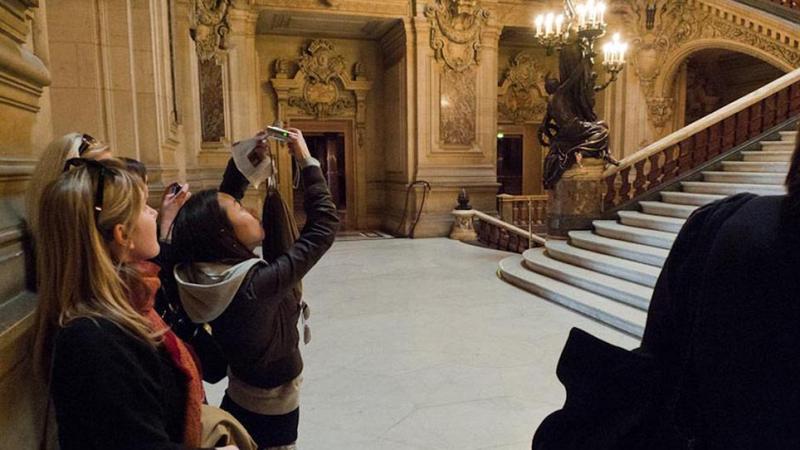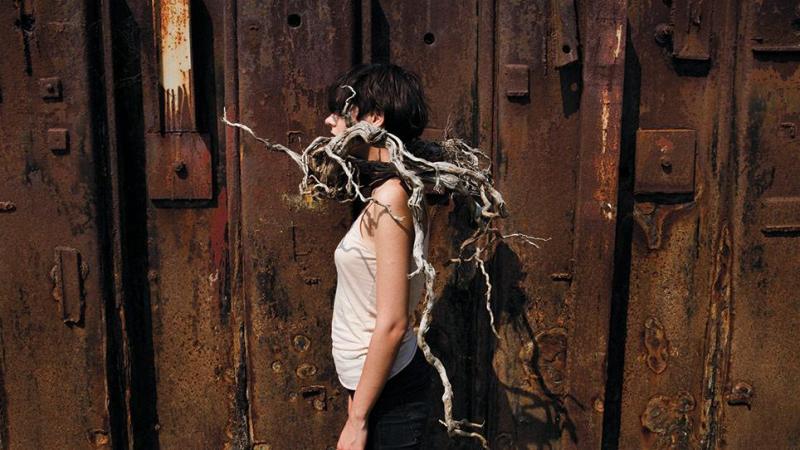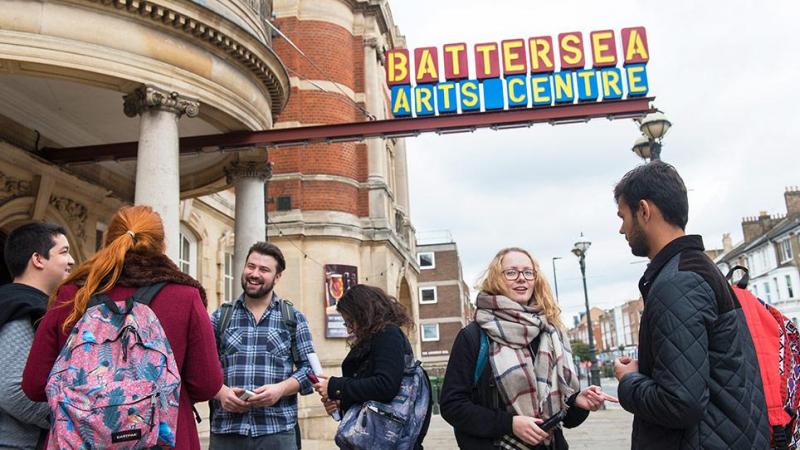BWW Blog: Royal Central School of Speech and Drama's Joel Anderson on What Dramaturgy Is and How it is Taught
 Dr Joel Anderson is an author, reviewer, researcher and a Senior Lecturer and Course Leader in MA Theatre Criticism and Dramaturgy at London's Royal Central School of Speech and Drama. Through his academic work, Joel has given doctoral seminars, lectures and talks around the world including in Australia, Canada, Chile, China, the Czech Republic, France, Germany, Korea and the United States of America. He has served as Visiting Professor at the University of London Institute in Paris and is currently an advisory committee member at the Centre de Estudos Teatros in Lisbon. His work has been widely published in articles and chapters and his book, Theatre & Photography, was published in 2014.
Dr Joel Anderson is an author, reviewer, researcher and a Senior Lecturer and Course Leader in MA Theatre Criticism and Dramaturgy at London's Royal Central School of Speech and Drama. Through his academic work, Joel has given doctoral seminars, lectures and talks around the world including in Australia, Canada, Chile, China, the Czech Republic, France, Germany, Korea and the United States of America. He has served as Visiting Professor at the University of London Institute in Paris and is currently an advisory committee member at the Centre de Estudos Teatros in Lisbon. His work has been widely published in articles and chapters and his book, Theatre & Photography, was published in 2014.
The cultural hub of London is the venue for the MA Theatre Criticism and Dramaturgy at Central. The course balances theoretical study of theatre and performance with the development of diverse skills for dramaturgy and criticism, with applications in scholarship and across the creative industries.
In this article, Joel discusses dramaturgy - what it is, what it entails, and how it is taught.
 It has become a recurring joke among students on the MA Theatre Criticism and Dramaturgy that the curriculum of the MA stops short of defining what, in fact, dramaturgy is! Attempts at addressing the term start in the first term, when the new cohort typically undertakes a literature review on the subject of 'What is Dramaturgy?', which most years results in an awareness that theatre artists and scholars have proposed a range of distinctive, sometimes even conflicting, accounts of what a dramaturg does, and what the act of dramaturgy involves. Hardly a familiar term, in general use, or even within theatre education or the theatre industry, dramaturgy certainly resists easy definition, and, on the MA and elsewhere, we tend to emphasise a series of working notions, rather than any all-encompassing idea.
It has become a recurring joke among students on the MA Theatre Criticism and Dramaturgy that the curriculum of the MA stops short of defining what, in fact, dramaturgy is! Attempts at addressing the term start in the first term, when the new cohort typically undertakes a literature review on the subject of 'What is Dramaturgy?', which most years results in an awareness that theatre artists and scholars have proposed a range of distinctive, sometimes even conflicting, accounts of what a dramaturg does, and what the act of dramaturgy involves. Hardly a familiar term, in general use, or even within theatre education or the theatre industry, dramaturgy certainly resists easy definition, and, on the MA and elsewhere, we tend to emphasise a series of working notions, rather than any all-encompassing idea.
This is in part the consequence of dramaturgy, in the English-language context, persistently having the characteristics of a term borrowed from other languages, and as such from other understandings of artistic and aesthetic context, and other modes of cultural production. In dictionaries (where students of dramaturgy must get past the first meaning usually given, which is a synonym for playwriting), the term 'dramaturg' will often appear with or without a concluding '-e', with the two spellings of the word pointing respectively to the German and the French versions of the term, with the soft and the hard 'g' both listed as acceptable pronunciations.
 In the British context - more than the North American one, in which dramaturgy appears to have become somewhat established in recent times, at least within conventional theatre institutions - the residual foreignness of the word seems to correspond to a notion of dramaturgy as something itself imported, and the relatively few instances of British dramaturgy tend to show this through being linked to continental European theatre, through particular theatre companies or individual dramaturgs. In terms of text-based drama, dramaturgs in Britain have, since Kenneth Tynan and the emergence of The National Theatre in the 1960s, often found the scope of their work limited to that of literary management and a narrow selection from the various tasks of dramaturgy.
In the British context - more than the North American one, in which dramaturgy appears to have become somewhat established in recent times, at least within conventional theatre institutions - the residual foreignness of the word seems to correspond to a notion of dramaturgy as something itself imported, and the relatively few instances of British dramaturgy tend to show this through being linked to continental European theatre, through particular theatre companies or individual dramaturgs. In terms of text-based drama, dramaturgs in Britain have, since Kenneth Tynan and the emergence of The National Theatre in the 1960s, often found the scope of their work limited to that of literary management and a narrow selection from the various tasks of dramaturgy.
But what are those tasks? The art and science of dramaturgy concerns itself with how stage elements create meaning. Along with the literary management element of the dramaturg's role (involving the selection of plays and the programming of a season), perhaps the most conventional role of a dramaturg is that of a researcher. But this research activity extends from historical 'background' research into engagement with the history of the play itself, and indeed with the history of productions, of staging and stylistic choices made at particular points.
In the contemporary context, where non-text-based work, and work using non-traditional venues feature prominently in certain landscapes of artistic production, there is an observable re-emergence of the figure of the dramaturg, even in the British context where it has traditionally been marginal. If this seems surprising, given dramaturgy's close association with literature and with dramatic texts, it might also make sense: without the prompting provided by the written play, the determining and channelling of forces, of conflicts becomes more necessary: what is to be staged, and how, becomes the key question.
Dramaturgy points to the practices and roles that remain important and urgent in creating theatre today. It is attractive to students in part because it finds a place for critical thinking at the heart of production. And its dynamic approach in the wake of conflicting and contradictory forces has a wider applicability. It has become a cliché to speak of the polarised political era in which we currently operate, and the shock experienced by many vocal and apparently literate and informed citizens in the face of political events such as (to cite the most obvious examples) the election of Donald Trump or the result of the Brexit referendum has been widely observed. If those events have revealed a gap in the capacity of some to make predictions, their aftermaths have continued to bring into question commentators' ability to 'read' to navigate - and even to be curious about - the forces at play on both 'sides'. While little is gained from commonplaces envisaging the field of politics in terms of its supposed theatricality or its drama (and indeed even as a series of collisions between fact and falsehoods), a dramaturgical approach might have something to offer, through its capacity to consider the ensemble of elements in play in a situation, including those that are contradictory or unintended, and through an inherent concern with the historical context in which and by which events unfold. It is dramaturgy's attention to specific instances, and its straddling of theory and practice that can make it so resistant to simple definition.
The Royal Central School of Speech and Drama is a leading UK drama school located in London - a highly regarded, specialist conservatoire and a constituent college of the prestigious University of London. Central provides specialist training in the dramatic and performing arts, offering Bachelor's and Master's degrees as well as short courses and PhD opportunities. Students from across the world study on Central courses, bringing a rich diversity of skills and experience to create a unique community and training environment.
All of Central's courses take place on the school's Swiss Cottage campus in Hampstead, a quiet, leafy corner of London which is only 10 minutes by tube from the bright lights of central London's West End theatre district. Central's campus houses the 234 seat Embassy Theatre, numerous workshops, rehearsal, movement and performance studios and the new £16.7 million state of the art North Block building comprising a studio dedicated to film, media and digital work and a galleried, courtyard theatre.
Central holds auditions and interviews for its courses across the globe, including San Francisco (4 and 5 February 2020) and New York City (8 and 9 February 2020). To find out more and to register your interest in being considered for a course, please visit the Central website here.
Videos

